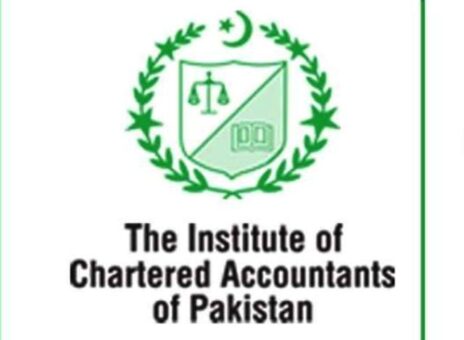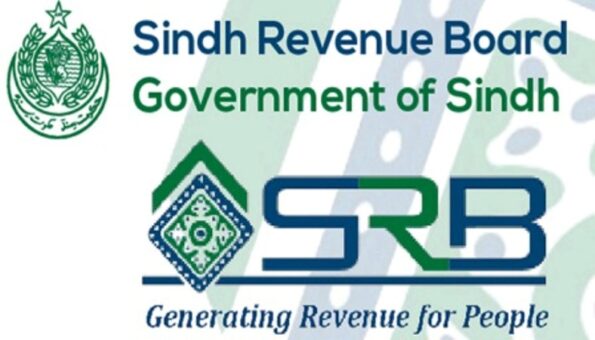KARACHI: The Institute of Chartered Accountants of Pakistan (ICAP) has said that documentation of agriculture income is must for bringing tax reforms in the country.
In its budget proposals for year 2019/2020 the ICAP said that there was a serious need of brining taxation of agriculture income under a more transparent and documented manner.
“Capacity building of Provincial Authorities, in this regard, is required to be undertaken by the federal government,” it said.
Though taxation of agricultural income may remain with the provinces under the Constitution but there is no bar on federal government in documenting agricultural income, so that the agricultural assets and income earned there from are identified and not used for under reporting and mis-declaration, it added.
Following are the other proposals of the ICAP for tax reforms:
Effective Utilization of Available Database
The basic source for broadening of the existing Tax Base is financial transactions carried out by the persons who avoid filing tax returns.
All major financial transactions require CNIC number and the FBR should remain in touch with these authorities/offices to collect information.
The ICAP believes a proper mechanism is central to this issue and needs to be introduced in the law to bring the potential unregistered persons, whose information is already available in the shape of NTN/CNIC, through withholding provisions. Further, all the bank accounts (including existing bank accounts) should mandatorily be tagged with tax registration.
As such, banks should only open accounts of traders and shopkeepers (including sole proprietors and association of persons) having trade license and / or proper tax registration.
Additionally, commercial connections of gas and electricity provided to non-filer should also be discontinued.
With the advent of global tightening on the grey/black portion of the economy as well as rising scrutiny on the untaxed offshore assets, we encourage setting up of separate
Directorate for International Taxation and Special Unit (Automatic Exchange of Information – AEOI) for dealing with cases arising out of exchange of information.
However, AEOI requires further strengthening of resources and integration with the local database for broadening of the tax base. All these requirements should appropriately be included and made part of the relevant laws.
Facilitating / Rewarding Tax Payers to create an incentive culture
In order to encourage and motivate taxpayers, we suggest some mechanism has to be developed to stop all types of unfair treatment with existing taxpayers e.g. explanation of each and every credit entry in the bank statements.
In this regard, issuance of a Taxpayer Facilitation Card should help with a preferential treatment given to individual taxpayers paying taxes above a particular threshold in a year (say, tax of Rs 1 Million, or above).
Filers should also, in letter and spirit, be given priority treatment at various infrastructural facilities e.g., at NADRA, excise and taxation when registering motor vehicles, courts of law, airports etc.
Final Taxation based on Income Parity
Presently, certain sectors / goods are being taxed under Presumptive / Value Added / Fixed Tax Schemes. It is proposed that all Presumptive / Value Addition / Fixed Tax Schemes be abolished and, all such sectors / goods may be brought under the uniform tax regime to promote the culture of income-based taxation rather than receipt-based taxation.
Minimum Tax (MT) and Alternative Corporate Tax
For rationalization of taxes, simplification as well as overall efficiency, we suggest only one type of Minimum Tax Regime should be applicable on the taxpayer.
At present, additional MT Regimes in the form of ACT and MT on services are also applicable, which is undue and creates distortions.
Alternatively, ACT should be made applicable on the companies after two years of date of incorporation or start of commercial production, whichever is later.
In this regard, Small Companies should be exempt from ACT altogether. In case MT paid due to a tax loss for the year, it is proposed that the taxpayer be made entitled to carried-forward, and therefore should be able to adjust it against the tax liability for five succeeding tax years.
In our view, applicability of 8 percent MT on services also stands unreasonable. There are already a number of exceptions created for this regime, which is resulting in discrimination.
Simplification of Withholding Tax Regime
The chartered accountants believe, for simplification purposes, there should be a minimum number of withholding taxes but with few standard rates for all withholding taxes.
The differentiation should be on the basis of filer and non-filer only. All withholding taxes collected or deducted should be made available for adjustment.
They suggest to reduce withholding tax provisions for “filers” while raising the rate of withholding taxes for non-filers at the same time.
This would help “filers” to utilize resources for business purposes.
Further, exemption certificates be issued for all sorts of withholding taxes to the filers by receiving advance tax on quarterly / monthly basis.
Reforms in Sales Tax Filings
In case of any omission or wrong declaration in the return, a registered person is required to obtain approval from the Commissioner Inland Revenue in order to enable him/her to revise his/her return.
Previously, this option was provided through SRO 278(I)/2010 dated 28 April 2010, but revoked through SRO 487/2011 dated 3 June 2011 due to potential misuse of this facility by declaring nominal increase in tax liability in revised return.
However, now owing to STRIVE, the manipulation chances are minimal.
Further, serious reforms are required in respect of following:
(i) Claim of input tax within six months, beyond which approvals are unnecessarily required;
(ii) Refund claim under sections 10 and 68 beyond one year requires unnecessary approvals and condonation with no response time prescribed for Tax Officials;
(iii) Automated system of applications for condonations under section 74 is required; and
(iv) Automatic restoration of un-adjusted input tax is required if refund cheque is not issued.
At present, refund claims result in removal of input tax from the system because of which taxpayer is unable to utilize input tax if refund cheque is not issued in time.
Appellate Forums
It is felt that the principles of justice are not met at the first level of appeal i.e. Commissioner-Appeals. In this regard, Commissioner-Appeals should be brought under the administrative control of the Federal Ministry of Law and the Appellate Tribunal under the control of the High Court of the respective jurisdiction.
All decisions of Commissioner-Appeals and Appellate Tribunal should also be reported for transparency and improvement of confidence of the taxpayer in the taxation system of the country.
It is also suggested that an officer once appointed as Commissioner-Appeal not be subsequently assigned any functions, powers and responsibilities of an office or authority subordinate to the Federal Board of Revenue.
Relaxation in Levy of Advance Tax on Import of Raw Materials
In order to minimize cost of production, we suggest, the Industrial undertakings be allowed to import raw material in the first year of production, without payment of any advance tax.
For subsequent years, they may be allowed exemption against advance tax under Section 148 on import of raw material, as per actual requirement, instead of 125 percent quantity of the previous year.
The tax scheme should also be rationalized with the taxation of the commercial importers, if opted for normal tax regime.
Tax on Surplus of Not-for-Profit Organization
It is recommended to abolish sub-section (1A) and (1B) of section 100C of the ITO, as it is directly causing hindrance to the welfare activities involving capital expenditure to be incurred over a period exceeding one year. This requires due attention.
Alternatively, the limit of spending in a year on charitable and welfare activities from receipts during that year currently set at minimum 75 percent of such receipts, may be analyzed over a reasonable period (at least three years), to account for expenditures, which are inevitably spread over a period exceeding one year.
Execution of Contract by a Non-Resident Supplier
The Finance Act 2018 brought about certain amendments in the Income Tax laws to tax supply of goods by a non-resident in case of overall arrangements for Engineering, Procurement, Construction and Commissioning (EPCC), even if the supply is made outside of Pakistan.
The said amendments, in our view, as introduced through the Finance Act 2018, are not consistent with the International Tax Laws. Therefore, it is suggested that the competent authority reconsider such amendments in order to align it with the International Tax Laws.
Adjustable Input Tax
Presently, Section 8B restricts the claim of input tax up to 90 percent of the output tax and requires mandatory payment of 10 percent.
It is suggested that Section 8B may either be removed from the statute or, at least, the mandatory payment of 10 percent be reduced to 5 percent.
The issue of bogus refund is reduced to certain extent after introduction of STRIVE.
Capacity Building of Revenue Authorities
Capacity building is immensely important for the tax-collecting institution to assume and effectively execute larger challenge of documenting the economy.
In this regard, the FBR should also go for hiring of professional staffs (like CAs, ICMAPs, PIPFAs, etc.) both at Commissioner and operational level having sufficient experience e.g. 2-5 years for the relevant position.
Documenting the Economy & Revamping the Tax Mechanism
Though not preferred, but a one-time Amnesty Scheme may be considered for bringing the black money into the tax net.
Sufficient time should be provided so that people properly understand and make maximum use of the scheme. This may give better results after recent introduction of AEOI and follow-up tax proceedings.
Rationalization of Further Tax and Extra Tax Regime
Extra tax at the rate of 2 percent is levied and collected by the manufacturers and importers on certain goods designated as specified goods under Chapter XIII of the Sales Tax Special Procedure Rules, 2007 and, are tabulated in Rule 58S. Subsequent supply of specified goods subject to Extra Tax at the rate of 2 percent is exempt from the payment of sales tax, including those as made by retailers as per Rule 58T(5).
Accordingly, distributors, wholesalers or retailers of such goods cannot issue any tax invoice to their customers. In this regard, it is suggested that suitable amendments are made in the law to specifically exclude items subject to Extra tax from the ambit of Further Tax.




